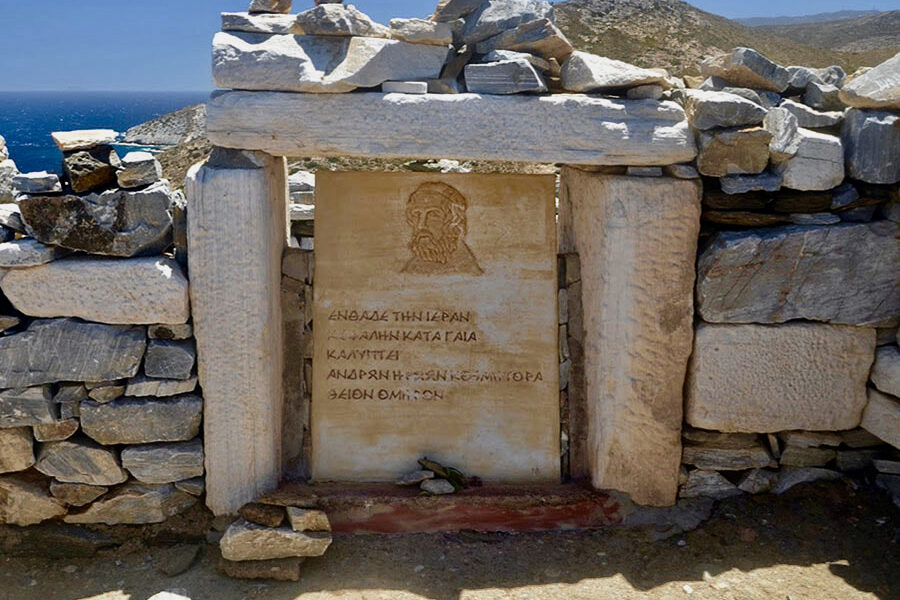Homer’s Tomb is located on Psathopyrgos Hill, in northern Ios over the gulf of Plakotos. The burial of Homer on the island is confirmed by ancient historians such as Herodotus, Pausanias, Stravonas and Alcaeus.
As a result, the findings excavated in the gulf of Plakotos in 1175 were accredited to Homer’s Tomb.
According to the legend, Homer died in Ios. Considered the greatest epic poet of the Greeks, the legend accounts that he died because he violated a Pythian oracle.
According to Pausanias, Homer visited the Delphi oracle to ask Pythia about his parents and origins.
Pythia replied with the oracle “Your mother’s home is the island of Ios, which will accept you when you die, but you should be careful of the enigma of the young children.”
The poet, however, broke the oracle and traveled to Ios.
There he saw some small children fishing on the coast. He asked what they had caught and the children replied: “Whatever we get we leave it and whatever we don’t get we take it with us”. The children were talking about lice.
Those who found them, killed them, but those who did not find them, had them to their heads.
Homer did not find the answer, but he remembered the warning of Pythia. He was horrified and ran away quickly. The road was muddy and the poet in his hurry slipped and fell, hitting his head and dying almost instantaneously.
According to another version, Homer died from his sadness that he did not solve the puzzle, while a third version says he was already seriously ill and went to Ios because he knew he would die. Of course, the death of the Homer is not based on historical records, but on myths and traditions that circulated from oral tradition. Pausanias simply recorded a popular narrative.
The connection between Homer and Ios is also confirmed by the local coins, which have his figure on one of their side (3rd and 2nd century BC).


